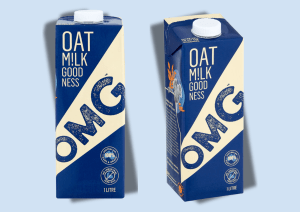The Australian Institute of Packaging’s (AIP) first industry-wide training program aimed at improving the cold chain credentials of those responsible for the integrity and safety of Australia’s chilled and frozen food supply is now available.
The Cold Chain Professional Development Series has been developed in response to cold chain losses from temperature abuse, which have been identified by recent national studies sponsored by the federal government.
The Australian Food Cold Chain Council (AFCCC), with support from the AIP and the Produce Marketing Association (PMA), have taken the lead by producing the first of five Cold Food Codes, and following this with the first online training program of its kind for those who work at the many levels in the cold chain, transport, distribution centres, loading docks, food industries and retail outlets.

“Right from the beginning of the project to develop a new Cold Food Code and associated cold chain training programs, the AFCCC recognised that any campaign to improve food safety and cold chain compliance must involve food packaging,” says Mark Mitchell, chairman of the AFCCC.
“This is because the relationship between packaging materials and design, and accurate temperature management, is interdependent.
“Australia is fortunate in having a packaging institute such as the AIP that is not just technically competent, but possesses an acute understanding of packaging materials and technologies, together with a broad knowledge of how a wide range of industry uses packaging.”
The first available Training Module in the Cold Chain Professional Development Series is the Basic Principles of Thermometers and how to use them, and is aimed at two audiences – the cold chain practitioners and managing practitioners.
The training modules go back to the basics of what a thermometer does, how it should be maintained, calibrated and used on a variety of packaging and produce.
It outlines the range of thermometers used in the cold chain, including thermistors, thermocouples, resistive temperature detectors, infrared thermometers and bimetallic devices.
The online courses can be undertaken in a practitioner’s own time and will earn them qualifications that can enhance their professional skills in an industry that desperately needs such talent.
“We in packaging remain closely involved in the cold supply chain and currently excessive food is being damaged while in transit,” says Professor Pierre Pienaar, education director, AIP.
“These cold chain training modules focus on the issues and explain, in an easy guide, possible ways how we can mitigate problems and potential damage to ensure the safe and efficient delivery of goods to our customers.
“It is a must for all packaging technologists, as well as everyone within the cold chain supply chain. I can assure you that if you follow these guidelines you will significantly reduce food waste in the supply chain.”
To register for the Basic Principles of Thermometers and how to use them training module, click here.






